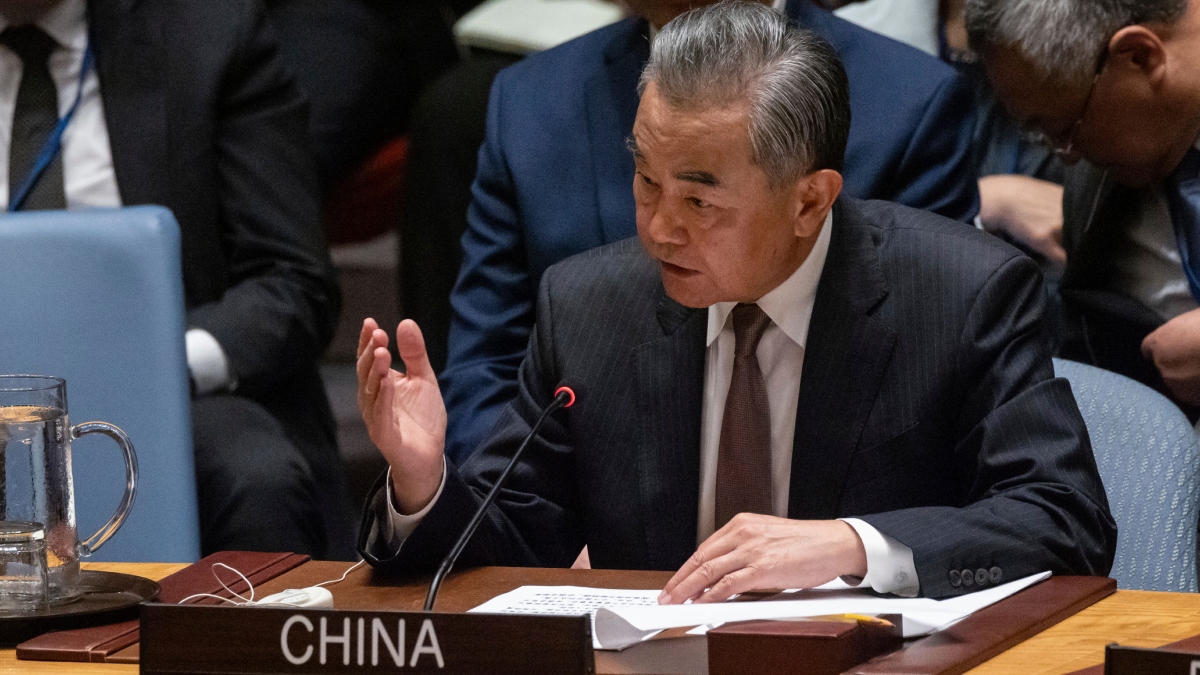 |
|
The inaugural conversation between US Secretary of State Marco Rubio and his Chinese counterpart, Wang Yi, has ignited a fresh wave of tension in the already strained US-China relationship. The meeting, which ostensibly aimed at establishing communication channels between the two nations, instead showcased a stark divergence in approach and a clear demonstration of the deep-seated mistrust that permeates the bilateral relationship. The crux of the disagreement stems from a veiled warning issued by Wang Yi to Rubio, advising him, in essence, to 'behave' and to be more mindful of his public statements regarding China. This admonition, delivered using a Chinese phrase that inherently implies a hierarchical power dynamic, serves as a potent symbol of China's displeasure with Rubio's consistent and outspoken criticism of its policies.
Rubio's critical stance towards China is well-documented. As a US Senator, and now Secretary of State, he has been a vocal opponent of China's human rights record, particularly concerning the Uyghur minority in Xinjiang and the situation in Hong Kong. These criticisms are not new; they predate his current position. This history, combined with his previous assertions about the importance of referring to the original Mandarin Chinese text when interpreting statements by Chinese President Xi Jinping, suggests that Rubio's approach to China is likely to remain consistent. It is this consistency, and its implicit challenge to China's authority and narrative, that seems to have prompted Wang Yi's sharp rebuke.
The contrasting statements released by both sides further highlight the chasm separating the two nations. While the Chinese Foreign Ministry statement explicitly mentioned Wang Yi's thinly veiled warning, the US State Department's account made no reference to it. This difference in reporting is significant, suggesting a deliberate attempt by the US to downplay the incident and to avoid escalating the situation. The US statement instead focused on Rubio's emphasis on advancing US interests in its relationship with China, and on expressing concerns about China's actions regarding Taiwan and the South China Sea. This strategic omission by the US likely reflects a calculated effort to maintain a semblance of diplomatic decorum, while acknowledging the underlying tensions.
The context of previous sanctions further illuminates the severity of the situation. China imposed sanctions on Rubio in 2020 in response to US sanctions on Chinese officials. These sanctions included a travel ban to China, raising questions about Rubio's ability to engage in future diplomatic exchanges. While the Chinese government has indicated a willingness to engage with Rubio in his current role, the lack of explicit confirmation regarding travel permits suggests that the possibility of future in-person meetings remains uncertain. This uncertainty adds another layer of complexity to the already delicate diplomatic dance between the US and China.
The incident underlines the deep-seated challenges facing US-China relations. The two nations hold fundamentally different perspectives on a range of issues, from human rights and trade to territorial disputes and geopolitical influence. The exchange between Wang Yi and Rubio highlights the difficulties in establishing effective communication channels when mutual trust is lacking. Moving forward, both sides will need to carefully consider their approach to dialogue. A frank exchange of views is essential, but without a concerted effort to build trust and understanding, the risk of further miscommunication and escalation remains high. The long-term stability of the global order may depend on finding a way to bridge this significant gap in perspectives.
The incident serves as a microcosm of the larger global power struggle between the US and China. Both nations are vying for influence on the world stage, and their relationship is characterized by a complex interplay of cooperation and competition. The sharp exchange between Wang Yi and Rubio serves as a reminder of the high stakes involved in this competition, and the potential for misunderstandings to rapidly escalate into major conflicts. The international community will be watching closely to see how both countries navigate this delicate situation, as the outcome could have significant implications for global peace and stability.
Source: Behave yourself: Chinese Foreign Minister warns US Secretary of State Rubio in first conversation
